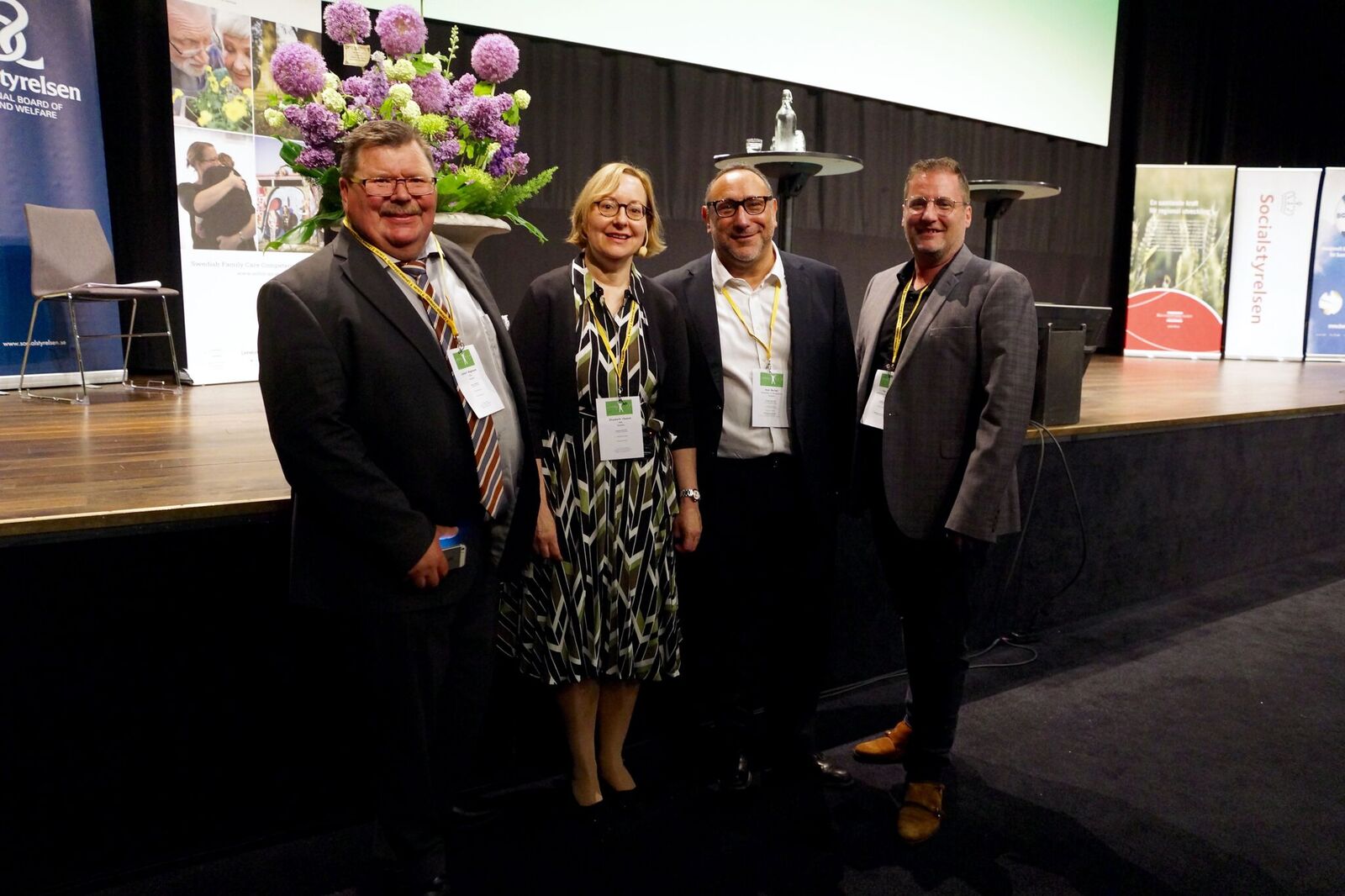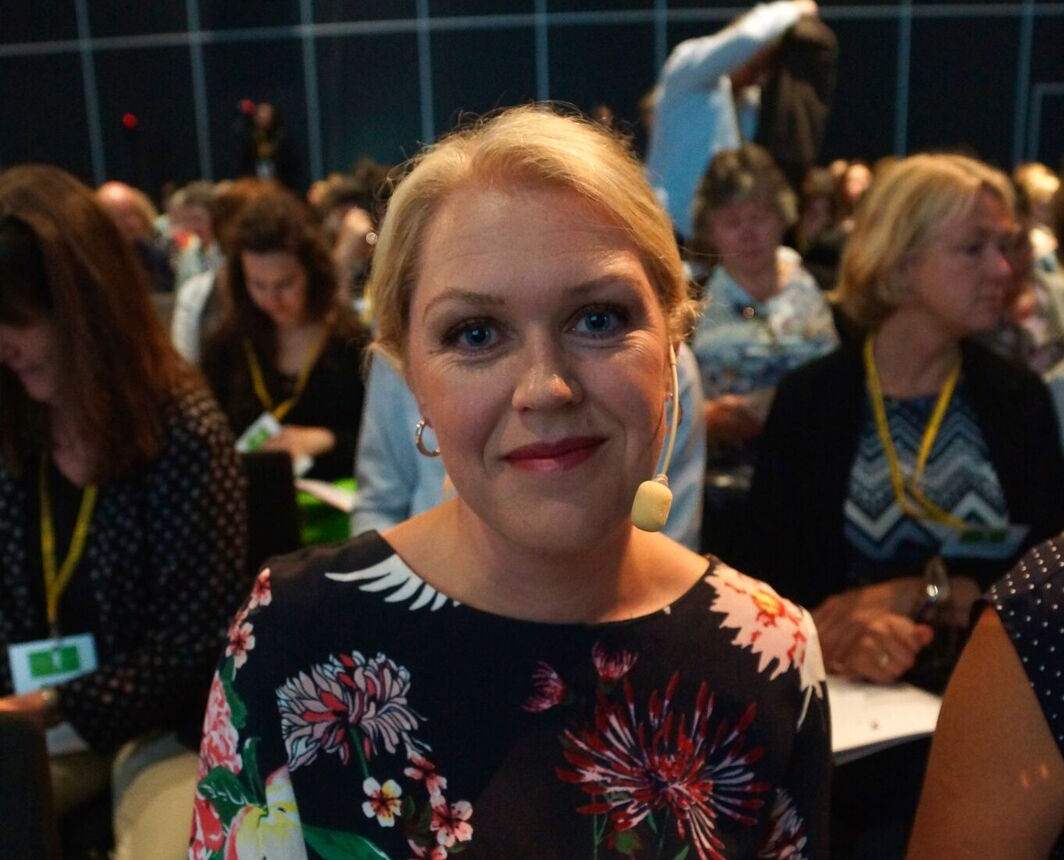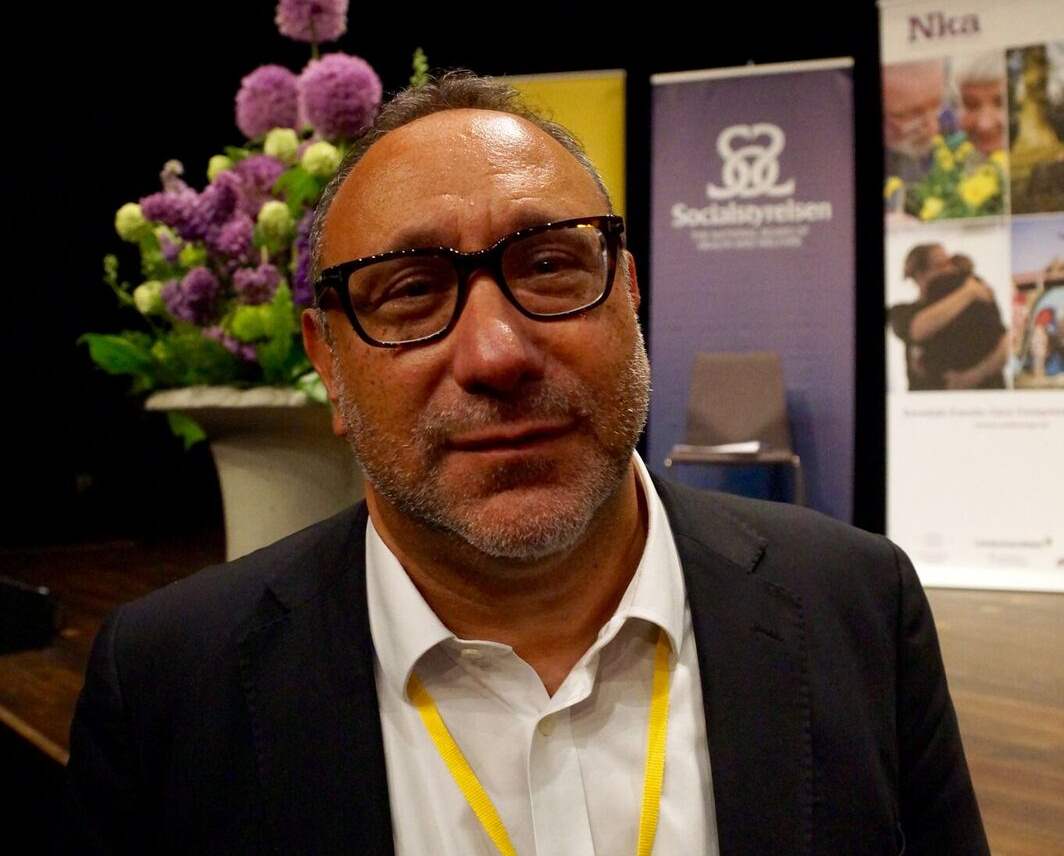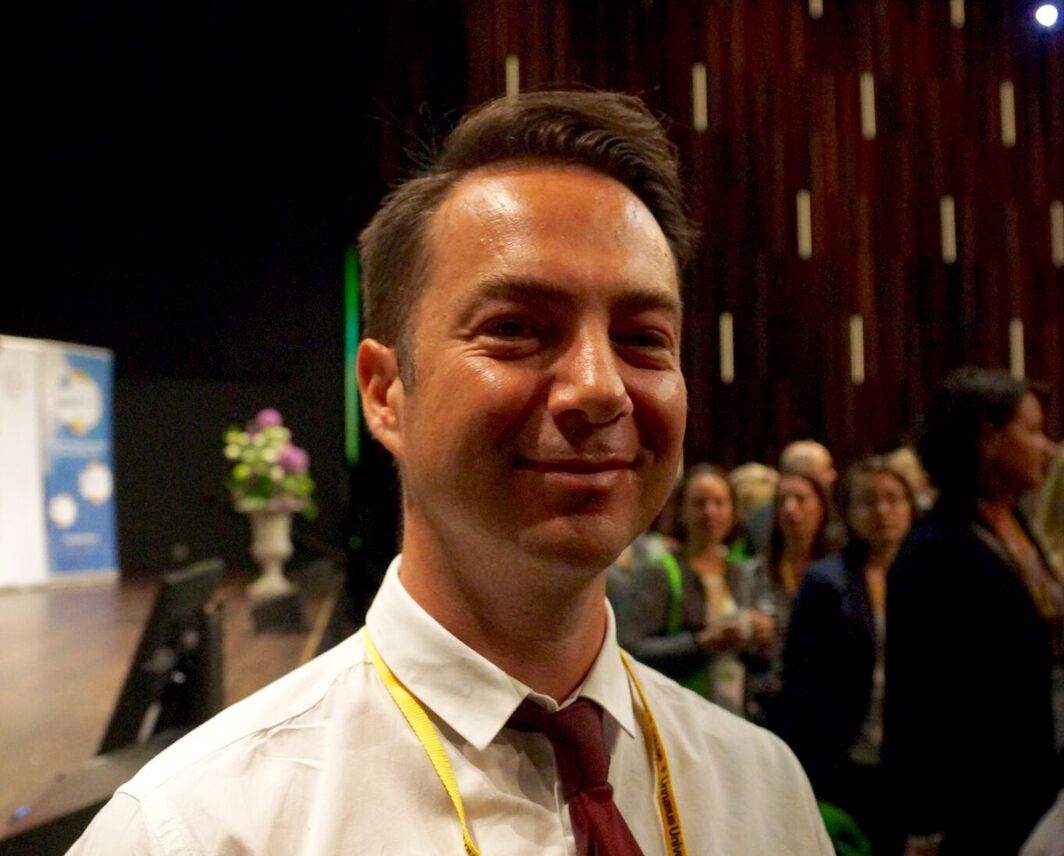Opening plenary

Lennart Magnusson, Elizabeth Hanson, Saul Becker och Tim Moore.
–There is increased awareness of the issues concerning children as next of kin and young carers. With the conference "Every Child has the Right to..." we want to continue spreading knowledge of this area, but also show that children and young carers must be more empowered in order to overturn their sometimes tough living situations. Working in partnership can speed up the pace of strengthening the situation of children and youths around the world. "This was a clear message I think from all the introductory speakers at the conference," says Lennart Magnusson, Director and Researcher, The Swedish Family Care Competence Centre (SFCCC).
More than 500 people from 26 countries, of which 100 were speakers, listened to the opening lecturers of the conference "Every Child has the Right to..." taking place in Malmö during 29-31 May 2017.
The conference is a joint effort and part of a multi-year Nordic collaboration involving Linnaeus University, The Swedish Family Care Competence Centre (SFCCC), Children's Best (The Norwegian National Competence Network), FORTE (Swedish research foundation for health, working life and welfare), Swedish National Board of Health and Welfare, and Danish National Board of Health and Welfare in close cooperation with Eurocarers, Region Skåne and Malmö City.
Rights issues in focus
Elizabeth Hanson, Research leader and professor, The Swedish Family Care Competence Centre (SFCCC) and Linnaeus University, opened the conference and stated that the great interest from countries around the world shows how important the global issue of children as next of kin and young carers is.
–The title "Every Child has the Right to..." is strongly linked to children's rights issues, an area where some countries have come farther than others, which is something we certainly will highlight in these days. The conference aims at increasing the understanding of the situation of children and young people as carers, and how we can best support these carers, on the part of society, non-profit organisations and also through rights legislation.
Elisabeth Hanson emphasised that all the different seminars and workshops, where young carers would also share their experiences over the days of the conference, will help raise awareness further and increase cooperation in order to reach common guidelines. The goal is to improve the situation of children and youths around the world.
School health services are an important channel
Parliament member Lena Hallengren (S) emphasised in turn the importance of the social welfare system functioning as a guarantee that children are able to continue being children, even if they have parents who have serious health and care needs. She pointed to school health services as an important channel for both discovering and supporting children and youths, who take on all too much responsibility in the family.
–When three percent of Swedish children stay home from school one day a week in order to take care of someone at home, which corresponds to one child in every class, then it becomes clear that society's support system must be improved. The responsibility for a family member must never be so great for a child or a youth that it impacts their schooling and in the long run their opportunities for higher education, employment and a satisfactory social life.
Lena Hallengren also brought up the UN Convention on the Rights of the Child and in particular, Articles 9, 18 and 31. She pointed out the important work going on with making the Child Convention into Swedish law.
–It is going to raise the status of children and young people in society. Sweden will be the best country in the world to grow up in. All children have a right to their childhood.

Lena Hallengren
Increasing number of young carers
Saul Becker, professor and Pro-Vice Chancellor, University of Birmingham, UK stated in his speech that the issue of children and youths as carers attracted very little interest 25 years ago when he started his research in the field, but today in 2017, he can say that the issue has received great importance in many countries of the world.
–At that time there were not even accepted words when one spoke about young carers. To be able to talk today in front of an audience of 500 people, on how the situation looks in different countries for children as next of kin and young carers, and how we best can work to give them support and strengthen their health and well-being, is fantastic.
Over the years Saul Beckert has collected statistics that show the development in the field. Clearly the really young carers, five to seven years old, are increasing in number and even the number of hours they put into care of family members is increasing.
Interest for these issues is increasing, but more research is needed in the area, stresses Saul Beckert, and more attention from the surroundings of these children and youths:
–The sooner we can initiate the right interventions to provide support and help for children and youths who take on too much responsibility in families, the better. Children and youths must feel that they are not powerless in a tough living situation, but instead receive help and be able to participate and have influence.

Saul Becker
Empowerment strengthens one's self-image
Theo Gavrielides, Professor, The IARS International Institute, London also focused on influence and empowerment. Through the two-year project, "care2work" (www.care2work.org) he wants to improve the attitude towards children and youths as carers.
–It is important not only to see children and young carers as victims, that caring has only a negative side. We want to highlight that increased responsibility in the family also has positive effects, that children and youths develop qualities and skills that they can greatly benefit from in the future. By bringing out the positive, without being blind to the difficulties, one can help to strengthen the self-image of children and youths and increase their capacity for empowerment.
It is important to allow children and youths to participate, to be listened to and to create conditions so that they can influence their lives in a positive direction, he stated.

Theo Gavrielides
High level of the first talks
Ritva Gough, from SFCCC, thought that today's first lectures held a high level and laid a good foundation for the coming conference days:
–I thought it was positive that Lena Hallengren pointed out how important support functions are, that we must manage to create good support for parents who for different reasons, such as alcohol abuse, drugs, illness and other problems, do not fully manage their parenting role. Children and youths should not need to shoulder the responsibility that really belongs to parents. All the conference speakers were clear about that I think.
Per Boge, Danish Cancer Fund, was interested in what Lena Hallengren said about the Swedish work to make the UN Convention for Children into Swedish law.
–In Denmark we would also need to sharpen our legislation regarding children and youths' rights. This conference feels very exciting. There is a gathering of experience and knowledge that I hope to share in these days. I also look forward to networking opportunities.
Text: Agneta Berghamre Heins
Translation: Susan Raia Canali
Senast uppdaterad 2021-12-21 av EmelieS, ansvarig utgivare EmelieS
